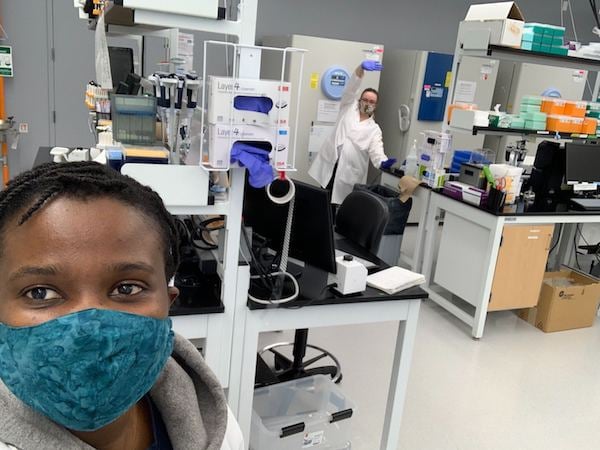As the world has battled the COVID-19 pandemic over the past few months, the scientific community has seen a shift towards prioritizing research into this disease. A key reason this research has been able to progress so rapidly is scientific sharing. Already we’ve seen articles about COVID-19 on preprint servers and in journals, and researchers have been making new materials like plasmids available to scientists around the world. To support this pace of research, new, centralized databases and centers to support the sharing of materials and data associated with COVID-19 research have rapidly been developed.
We asked the individuals behind some of these new platforms what their motivations were for developing these resources and why they value scientific sharing as the scientific community strives to understand COVID-19. While the specific motivations vary, everyone we spoke with sees sharing and collaboration as the best way that the scientific community can make progress towards understanding this disease.
 |
| Figure 1: Scientists are continuing to do essential research into COVID-19 (like here at Addgene!), and new databases are supporting their access to useful resources during this time. |
Facilitate collaborations within the scientific community
The team behind Crowdfight COVID-19 strives to match up scientists across fields with different technical knowledge that could help fight COVID-19. They’ve also collated a list of useful research resources.
"We realized that there is now a huge pool of highly skilled scientists, willing to volunteer their time and expertise for this cause: from virologists who don't have the resources to get directly involved with COVID-19 to researchers in other disciplines (bioinformatics, image analysis, AI…). How to put the wider scientific community at the service of COVID-19 research? We decided to give it a try, by creating a service for COVID-19 researchers. So far, we have been able to help 65 researchers and we are processing 159 more requests."
Pool and maximize resources nationally and internationally
COVID-19 Resources Canada is a database that provides information about reagents, funding and volunteer opportunities, protocols, publications, and more to accelerate the pace of research into COVID-19. While this program is based in Canada, much of the information is applicable to researchers worldwide.
“COVID-19 has spread incredibly fast and without any notion of national boundaries. To be able to beat this virus, we will need to do the same with science,” said Guillaume Bourque, a Professor in Human Genetics at McGill University. “There is a need to pool and maximize resources nationally and internationally such that we can advance COVID-19 research to hopefully help guide policies and ultimately treatments in a timely fashion.”
With this in mind, Bourque and Tara Moriarty, an Associate Professor at the University of Toronto, co-founded the COVID-19 Resources Canada site. To date, the portal has recruited 3,218 Canadian volunteers, and features over 200 COVID-19 related research projects, funding opportunities, and community response initiatives.
Accelerate the translational impact of research
Universities have also been stepping up to support COVID-19 research. The new Center for COVID-19 Response and Pandemic Preparedness (CCRP2) at Rutgers University not only supports collaborations at Rutgers, but also lists data and experimental resources that are useful to any researcher studying COVID-19.
“Open scientific sharing is important for creating research synergies and accelerating the translational impact of research activities. By streamlining the development and accessibility of research resources this way, the CCRP2 is giving Rutgers investigators the agility to rapidly initiate complex research projects that they would otherwise not be able to work on through normal mechanisms. It will take the full breadth of our research expertise, but we believe that by coming together, we can create a significant impact on both clinical care and public health for this current COVID-19 pandemic, and outbreaks that have yet to come,” said the team from the COVID Research Alliance at the CCRP2.
Other groups have focused on iterating on methods for coronavirus research, sharing resources for COVID-19 research in their field including datasets and platforms for discussing new developments, and more. As researchers around the world continue to investigate COVID-19, and once universities reopen and restart other research, scientific sharing will remain an extremely important part of the future of research.
To find other COVID-19 databases and resources, check out our growing Twitter thread.
We’re glad to see the scientific community work together to share open protocols, reagents, and other initiatives for #COVID19 research. Here’s what caught our eye recently (not a comprehensive list). #coronavirus #SARSCoV2 #Covid19research
— Addgene (@Addgene) April 15, 2020
A thread ⬇️⬇️⬇️
Additional resources on the Addgene blog
- Read about COVID-19 research on the blog
- Visit our guide for external collaborations
Resources on Addgene.org
- Browse our COVID-19 plasmid collection
Topics: Scientific Sharing, COVID-19






Leave a Comment